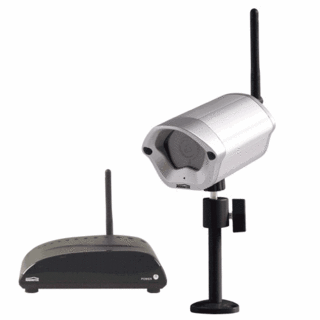Military Web sites offered adversaries a potent instrument to use an unprecedented volume of information.
Published:
17 February 1999 y., Wednesday
The chairman of the Joint Chiefs of Staff looked on as Pentagon cyber-warriors clicked away at their laptops and showed how would-be terrorists could find his son_s home address. Army Gen. Henry Shelton then got a demonstration of how a skilled adversary might combine publicly available biographies and contractor information on military Web sites with a few well-placed phone calls to pin down the dates of highly classified nuclear exercises. The classified briefing, held in Shelton_s entagon office, was then given to other generals and admirals as well as senior civilians, generating a momentum that has led the military to order a massive scrub of its vast network of Internet sites. Deputy Defense Secretary J. Hamre said military Web sites offered adversaries 'a potent instrument to obtain, correlate and evaluate an unprecedented volume of aggregated information' that could, when combined with other sources of information, 'endanger Department of Defense personnel and their families.' Instituted Dec. 7, the policy change has touched off a debate as some critics argue the Pentagon went too far in restricting the information it makes public on the Internet. In response, defense and national security officials have become more willing to discuss, on condition of not being identified by name, the nature of the risk their detailed review of military Web sites revealed. The briefings stemmed from work done in 1997 and 1998 by Pentagon 'red teams,' a term associated with a notional enemy force in war games. Team members tried to learn how much mischief they could do by skillfully scanning military Web sites, without any sophisticated hacking. The red teams found detailed maps and aerial photographs of military installations that would help anyone planning a strike or a terrorist action. These were the kinds of pictures, one senior official noted ruefully, that the United States spent billions to get during the Cold War through its spy satellite network. Now the United States was giving such imagery away for free on the Internet. The Pentagon says it has solid electronic evidence that foreign countries, including some adversaries, are regular visitors to U.S. military Web sites.
Šaltinis:
AP
Copying, publishing, announcing any information from the News.lt portal without written permission of News.lt editorial office is prohibited.
The most popular articles
Software company announced new structure_ of it_s business.
more »
 Just a few weeks ago, the world's tiniest video camera was as small as a grain of rice. Today, the world's NanoEst camera is even smaller.
more »
Just a few weeks ago, the world's tiniest video camera was as small as a grain of rice. Today, the world's NanoEst camera is even smaller.
more »
 During the experiment two research groups managed to overcome a symbolic 100 TB/s optical fiber data transmission speed limit.
more »
During the experiment two research groups managed to overcome a symbolic 100 TB/s optical fiber data transmission speed limit.
more »
 Apple’s long–awaited online storage service for iTunes could be named iCloud, if only rumours are to be believed.
more »
Apple’s long–awaited online storage service for iTunes could be named iCloud, if only rumours are to be believed.
more »
 The founders of video-sharing site YouTube have bought bookmarking service Delicious from Yahoo.
more »
The founders of video-sharing site YouTube have bought bookmarking service Delicious from Yahoo.
more »
 The successful raid by hackers on Sony’s PlayStation Network is already being ranked among the biggest data thefts of all time.
more »
The successful raid by hackers on Sony’s PlayStation Network is already being ranked among the biggest data thefts of all time.
more »
 Apple has denied that its iPhones and 3G iPads have been secretly recording their owners' movements.
more »
Apple has denied that its iPhones and 3G iPads have been secretly recording their owners' movements.
more »
 Customers who have waited nearly 10 months for the white version of the iPhone 4 won’t have to wait much longer. The Great White iPhone 4 is finally here.
more »
Customers who have waited nearly 10 months for the white version of the iPhone 4 won’t have to wait much longer. The Great White iPhone 4 is finally here.
more »
 Researchers at Georgia Tech University are teaching a robot the basics of dialogue. Named "Simon", the robot has already been taught how to attract a person's attention but eventually, it's hoped he'll be able to interact and converse with humans in daily life.
more »
Researchers at Georgia Tech University are teaching a robot the basics of dialogue. Named "Simon", the robot has already been taught how to attract a person's attention but eventually, it's hoped he'll be able to interact and converse with humans in daily life.
more »
 3D? Terribly lame when it's tossed into devices as a bullet point feature. Trimensional for iPhone takes a picture of your face and maps your mug in a 3D model.
more »
3D? Terribly lame when it's tossed into devices as a bullet point feature. Trimensional for iPhone takes a picture of your face and maps your mug in a 3D model.
more »
 The European Union is to investigate whether internet service providers (ISPs) are providing fair access to online services.
more »
The European Union is to investigate whether internet service providers (ISPs) are providing fair access to online services.
more »